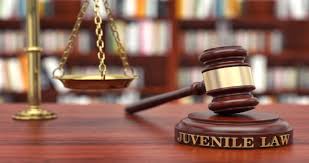SUPREME COURT HOLDS THAT SCHOOL RECORDS DO NOT OUTWEIGH PUBLIC RECORD WHILE ASCERTAINING JUVENILITY CLAIM IN MURDER CASE

The Apex Court, in a Judgment delivered on August 1, 2024, in the case titled Suresh v. State of Uttar Pradesh & Anr. (Criminal Appeal No.347 of 2018), set aside the juvenile status granted to an accused, holding that a mere school certificate was insufficient proof for determining juvenility when more reliable public records contradicted it. This decision by a Two Judge Bench comprising of Justices Pankaj Mittal and Ahsanuddin Amanullah, has significant implications for the procedure of age determination under the Juvenile Justice (Care and Protection of Children) Act, 2000, and the subsequent Rules of 2007.
Background of the Case
The dispute arose from a murder case dating back to 2012. Both the Trial Court and the High Court had accepted the Accused’s claim of juvenility solely based on private school records, which stated his year of birth as 1995. This would have made him a minor at the time of the crime. However, these records had been issued on the basis of the oral declaration of the Accused’s father at the time of admission, without any independent documentary proof of the date of birth. The Complainant challenged this finding, emphasizing the existence of more credible documents that contradicted the school’s data.
Core Findings of the Supreme Court
- The Supreme Court bench, observed that the courts below had failed to consider key public documents, namely the Family Register maintained under the U.P. Panchayat Raj Act and the Voter List, both of which recorded the year of birth as 1991.
- Additional support for this date came from a contemporaneous medical examination report, where the Chief Medical Officer of Muzaffarnagar opined that the Accused was approximately 22 years old as of December 1, 2012.
- Rule 12(3) of the Juvenile Justice Rules prescribes the order of preference for documents in age determination. The Supreme Court clarified that a school certificate, while admissible, is not conclusive when higher-priority, statutory/public documents indicate a different date of birth and especially when medical evidence corroborates the same.
Rejection of School Records as Conclusive Proof
The Judgment highlighted the procedural laxity in admitting a school record based on an unverified oral statement as determinative of age. The Court found the school certificate unreliable because it was not supported by independent documentation at the time of admission, and therefore could not override public records made under statutory authority and corroborated by a medical opinion.
Interpretation of the Juvenile Justice Rules
Rule 12(3) of the Juvenile Justice Rules gives precedence in the following order:
- Birth certificate issued by a municipal authority or panchayat
- Date of birth certificate from the school (first attended)
- Matriculation or equivalent certificate
- In absence of the above, age determined by medical examination
The Supreme Court reiterated that if more reliable documents (particularly public records or medical opinions) exist, these must take precedence over private school certificates, which are not to be considered public documents.
Impact and Legal Significance
- The Judgment reasserts that claims of juvenility must be rigorously tested, and not accepted at face value without cross-verification against more objective, statutory records or medical evidence.
- It serves as a warning against the misuse of school certificates, especially where these are based on unverified parental statements rather than contemporaneous official proof.
- The Court’s reasoning strengthens the legal process to prevent manipulation of age records in serious criminal cases, striking a balance between the protection of genuine juveniles and the necessity of protecting society from adult offenders seeking to evade responsibility.
- This lays a robust framework to ensure that the intent of the Juvenile Justice Act is served—protecting true juveniles, while upholding the necessity for a fair and just trial for adults.
Conclusion
In overturning the earlier lower courts’ decisions, the Supreme Court held that the Accused was an adult at the time of the offence and should be tried as such. The Judgment thus upholds the integrity of court proceedings in cases involving disputes over age determination, and strengthens the evidentiary standards and careful examination required for claims of juvenility under Indian criminal law.
Yash Hari Dixit
Associate
The Indian Lawyer and Allied Services
Please log onto our YouTube channel, The Indian Lawyer Legal Tips, to learn about various aspects of the law. Our latest Video, titled What Is Impeachment? Legal Process to Remove Judges and Officials in India | Advocate Sushila Ram Varma | can be viewed at the link below:





































Leave a Reply